Like most self-respecting cinephiles, we here at The Spool save up the petty cash in our wallet at least twice a year for the Criterion Collection to perform their semi-annual 24-hour flash sales; we’ve even done plenty of recommendation pieces for those in the past. But they’re not the only game in town, thank God, especially if you sleep through their day-long 50% off sales; Barnes & Noble, that last bastion of brick-and-mortar bookselling, does two month-long sales each year for the same half-off deal on 4K UHDs, Blu-rays, and DVDs from film fans’ most beloved imprint.
Now, whether you’re ordering online or going to some of the few Barnes & Noble locations that actually keep physical DVDs around, chances are you’re overwhelmed by the nearly 1300 options on display from the boutique label, that’s not including their Eclipse or Janus Contemporaries offerings. Still, we’re here to point out eight exciting new releases from the last few months that should be on your radar as you browse the shelves.
Anatomy of a Fall

Justine Triet’s Oscar-winning film from last year is more than a courtroom drama: it’s a long, entertaining, very deep dive into the blend between fiction and fabrication. A writer (Sandra Hüller, one of two incredible performances from her in 2023) finds herself in the middle of an inquiry surrounding the suspicious death of her husband, who fell to his death at their home not long after a blazing row. Did she push him? Did he fall? Anatomy of a Fall refuses to give you answers, but it will make you ask questions about the brittle nature of relationships, the drug tolerance of very good dogs, and the unexpected power of a steel-drum band cover of 50 Cent’s “P.I.M.P.” (Special features include a new interview with Triet, as well as deleted/alternate scenes, audition footage for the film’s breakout child star Milo Machado Graner and a short about the film’s exceptional boy, Snoop.)
Bound
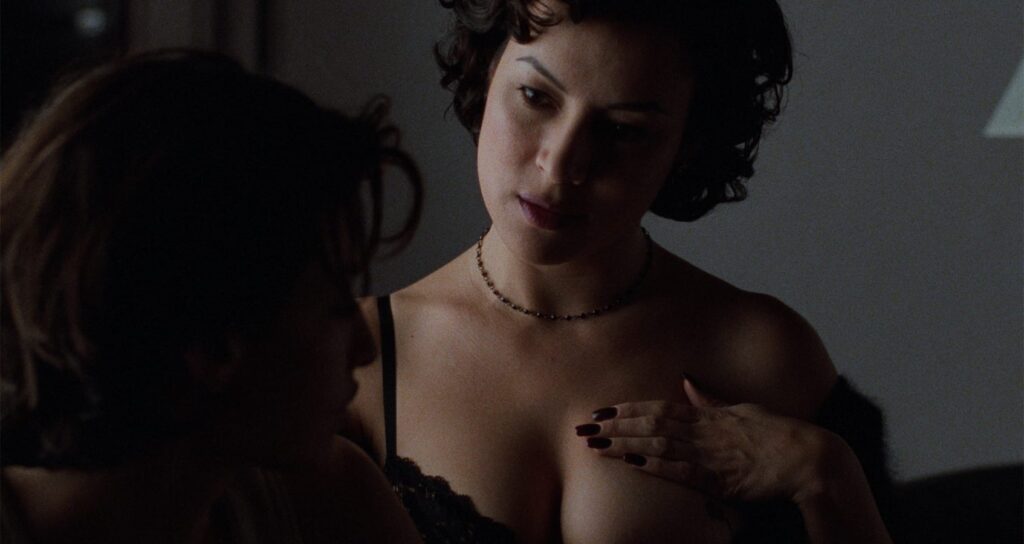
Before they changed the blockbuster landscape with The Matrix, Lana and Lilly Wachowski sharpened their sapphic knives with the sultry, slimy, stylish Chicago-set lesbian caper Bound. Circling around the white-hot affair between a butch ex-con (Gena Gershon) and the manipulative moll (Jennifer Tilly) of a brutish Chicago mob lieutenant (Joe Pantoliano), Bound delights in its narrative and cinematic transgressions — its open lesbianism, the twists and turns of its lovers-turned-heist-partners plot, and the claustrophobic intimacy of its Chicago high-rise staging. Plus, with its leather chic, looming Don Davis score, and Zach Staenberg’s crackerjack editing, it feels like a suitable audition for the boundary-breaking Matrix to come.
The 4k restoration looks gorgeous, and special features include an audio commentary with the Wachowskis, the three leads, Staenberg, and tech consultant Susie Bridge; a video essay from Christina Newland; six interview programs from cast and crew; and trailers. And the most special feature of all — the new credits remove the Wachowski’s deadnames and credit them as they are.
Peeping Tom
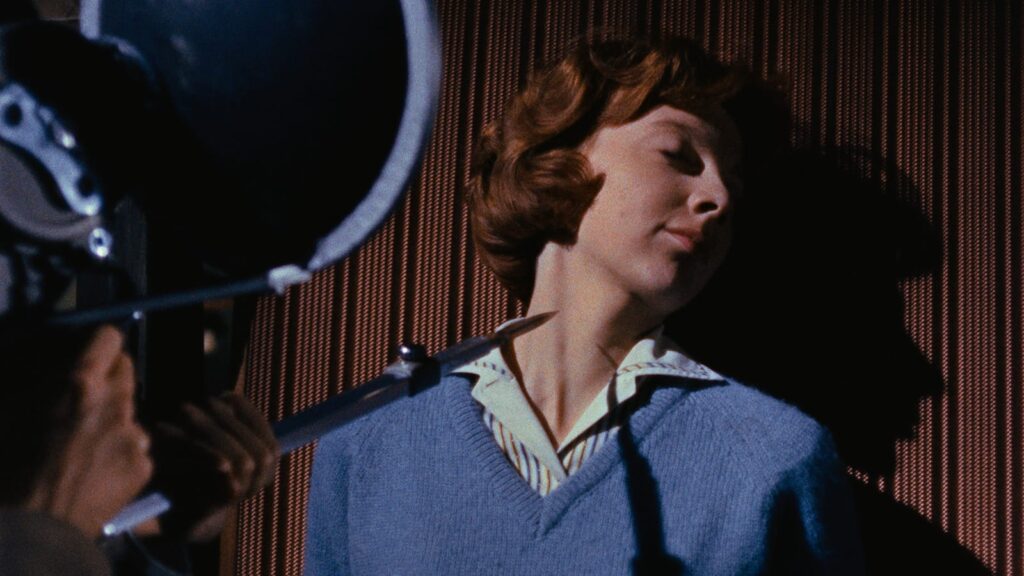
Criterion’s beautiful 4K restoration of Michael Powell’s taboo-breaking 1960 thriller is beautiful, turning the cinematic eye into a murder weapon. Mark Lewis (an appropriately alien-feeling Carl Boehm) is a serial killer who revisits his childhood trauma upon the women he obsessed over, films, then kills with his camera. In any other hands, it could be a cheap ’60s potboiler, and was indeed received as such at the time. But history has rewarded Powell’s assured camera and probing investigations into the nature of seeing, wanting, and destroying, making it one of the imprint’s most beloved classics.
As a reprint/rerelease of one of Criterions’ earliest releases, many of its special features carry over, with some new ones: Two audio commentaries are available, as well as an intro by Martin Scorsese. There’s also an interview with Thelma Schoonmaker (Powell’s wife until his passing) and documents about the film’s history and screenwriter Leo Marks; you also get an insightful peek into the film’s painstaking restoration process.
Soy Cuba (I Am Cuba)
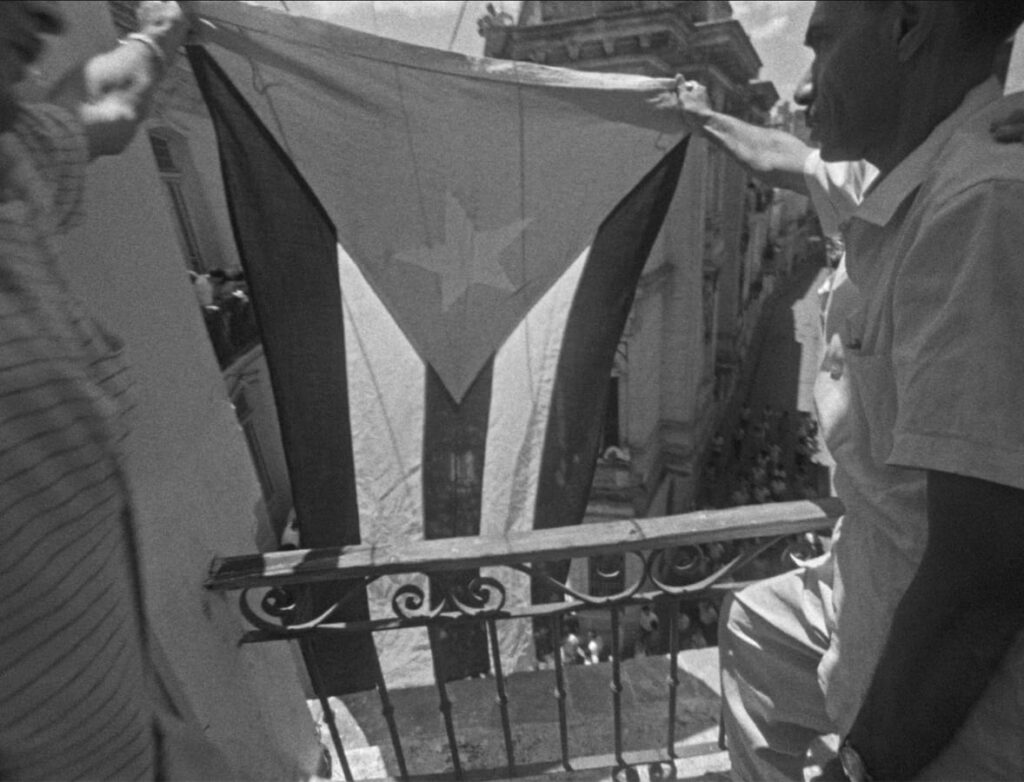
Don’t listen to Phil Lord’s handwringing about Soy Cuba‘s induction into the Criterion Collection; this Soviet-backed ode to Communist Cuba is a gorgeous masterpiece, no matter your politics. Directed by Mikhail Kalatozov with boundless ambition, Soy Cuba feels like an artifact of 1960s Cold-War politics from the other side of the aisle. Over its four stories blending fiction with documentary, the film expertly paints a decidedly romantic look at a country in the thrall of Communism, and all the romantic ideas that come with it. To say nothing of how gorgeous it looks, especially with its new 4K restoration; the artful black and white contrasts really pop, as Kalatozov’s camera swoops in and out of impossible shots that must be seen to be believed.
Special features include a 2004 doc on the film’s making, a 2003 interview with Scorsese (who championed its restoration), an appreciation by cinematographer Bradford Young, and an alternate Russian-dubbed soundtrack.
Three Revolutionary Films by Ousmane Sembène

African film remains a significant blindspot in Criterion’s canon of largely American, European, and Asian filmmakers; still, it’s making a game effort to include that continent’s most well-regarded filmmaker, Senegal’s own Ousmane Sembène. Adding to Black Girl and Mandabi, this trilogy of films includes three ’70s films that cried for revolution through the lens of his camera: Emitaï, Xala, and Ceddo. There, you’ll find sensitive, searing tales of communities bristling against authoritarianism, gut-busting satires of political corruption, and grand historical epics all in one set.
Each of these films gets a beautiful 4K treatment (perfect for Sembène’s impeccable use of color and heat). However, the features are sparse besides a conversation between Black scholars and film curators and a 1981 documentary on the making of Ceddo. Even so, the films are worth your dollar.
To Die For
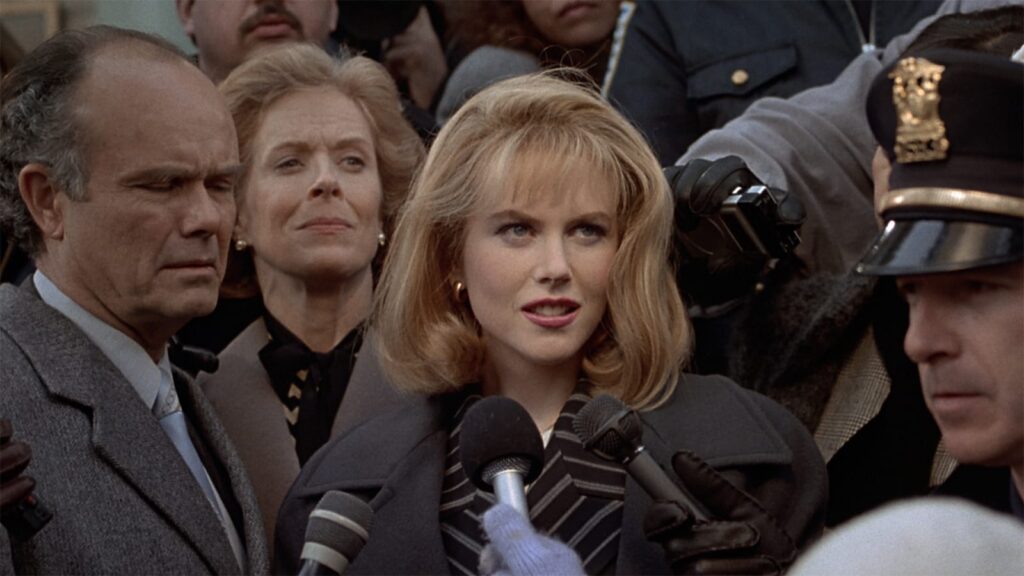
“You’re not anybody in America unless you’re on TV.” So says Suzanne Stone (Nicole Kidman), the picture-perfect all-American wife. All she dreams of is being a broadcast journalist, and she’ll do anything to get there — like plotting to murder her unsupportive husband with the help of a group of infatuated teens (including Joaquin Phoenix and Matt Dillon) who hang on her every word. Gus Van Sant’s ’90s potboiler is a heady mixture of pop-psychology terror and high camp, as Kidman’s bright-eyed performance boils over with manipulated affect and unconventional magnetism. It’s a beautiful time capsule of the era’s obsession with scandal and celebrity, and the ways public perception can warp even monsters into heroes with the right bone structure and media training. (Plus, the 4K is fantastic.)
Special features include an audio commentary with Van Sant, DP Eric Alan Edwards, and editor Curtiss Clayton, deleted scenes, and trailer.
The Underground Railroad
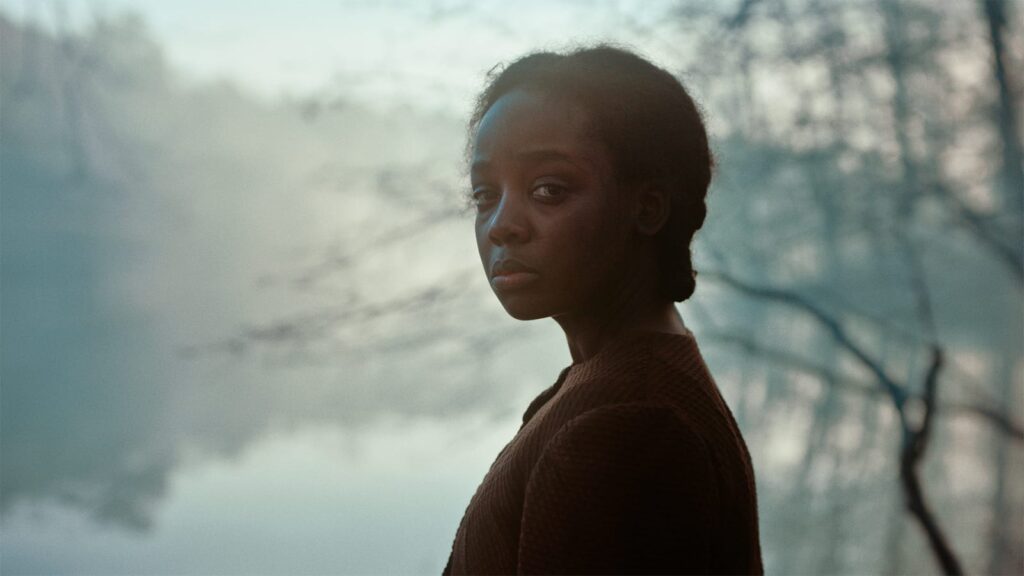
Barry Jenkins’ sumptuous historical epic The Underground Railroad could only have been made within the auspices of today’s prestige-streaming-series era, and yet it’s that same ecosystem that buried it from public attention and consumption. Shame, that, since Jenkins’ adaptation of the Colson Whitehead novel is one of the great television events of the century, a ten-episode chronicle of an escaped slave in the antebellum South (Thuso Mbedu, an aching vessel for pain and resilience) making her way to freedom through the fantastical notion of a literal Underground Railroad. Criterion releases very few television shows (I think Fishing With John and Tanner ’88 may be some of the only?), but it’s a delight to see Jenkins’ rhapsodic direction (and James Laxton’s poetic cinematography) in an uncompressed, physical format. This is a must-buy, especially now that Amazon would otherwise make you sit through ads to watch it today.
Criterion went all out for the special features, too; not only is there audio commentary from Jenkins on every episode and select collaborators on certain chapters, but there’s also a recommended alternate watch order for those that differ from the release order. An intro video from Jenkins explains why and how to watch.
On top of that, the set includes Jenkins’ companion film The Gaze, centering on the many lingering shots of Black faces staring back at the camera through history. Deleted scenes, teasers, and a production BTS video also show up. But the real treat this time is the physical booklet(s), from Angelica Jade Bastién’s yearning essay on the show’s impact to — gasp — an illustrated comic version of a lost eleventh chapter Jenkins had to drop from production, with beautiful artwork by Bitch Planet artist Valentine de Landro.
Werckmeister Harmonies
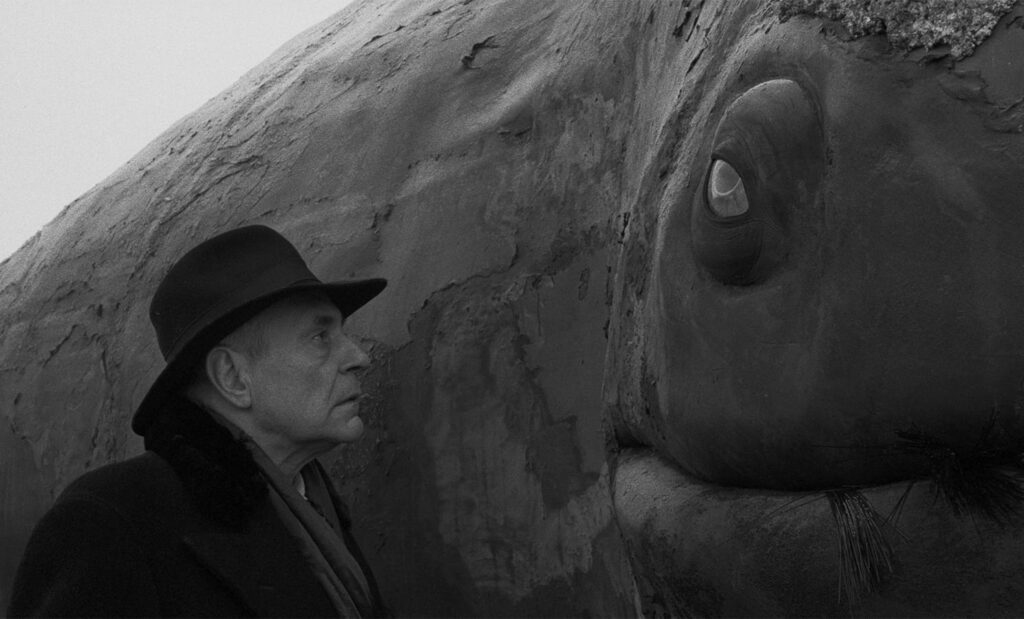
Béla Tarr, alongside co-director and editor Ágnes Hranitzky, crafts another challenging fable of long takes and existential dread, as a mysterious village out of time falls into collapse upon the arrival of a carnival and its demagogue of a leader. Tarr’s films always feel apocalyptic in a way, and this is no different, luring you into the perspective of a single villager (Lars Rudolph’s János) who sees the slow devastation of his community and is powerless to stop it. In a world where this kind of authoritarian truth-bending is becoming the norm, and sanity seems to be slipping from prominence, Werckmeister Harmonies is a haunting portrait of that helplessness.
The new 4K digital restoration (supervised by Tarr) highlights every grain of Gábor Medvigy’s chiaroscuro photography, played out over a series of signature long takes. On top of that, the set nests Tarr’s very first feature, 1979’s Family Nest, into its features for extra value. Tack on an interview with Tarr by critic Scott Foundas, and it’s a more succinct introduction to Tarr’s work than his seven-hour opus, Sátántangó.